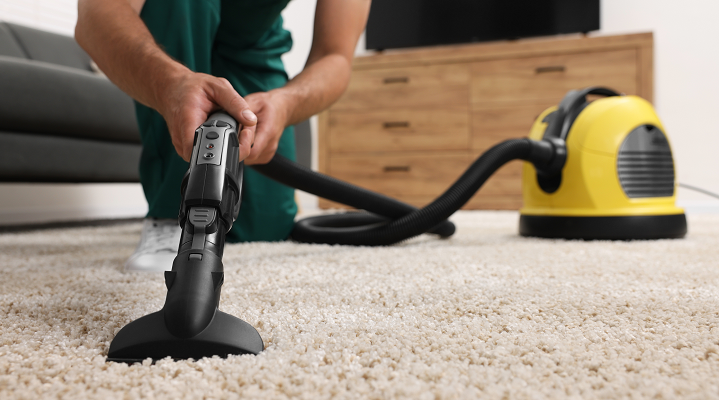Comparing the introduction of rabbits to Australia and the emergence of retail media networks may be a long bow to draw – but bear with me. European rabbits were introduced to Australia in 1859 as sport. Without natural predators, however, they took over, eating through pastures and crops, reducing the land’s productivity and competing with native wildlife. And this is where the similarity with retail media networks comes in. Over the past 12 months, retail media networks have been breed
breeding like rabbits. Their high-margin allure has become a great sport for retailers.
Just like with the rabbits, however, there may be some unintended consequences for retailers. Specifically, retailers that have successful private-label businesses. Like the rabbit, retail media networks may be endangering the native wildlife.
The first warning signs emerged in the US, where Walmart has been busily building out a huge and very successful retail media business. Supplier brands are piling in their dollars and seeing a healthy return on their spending. But a significant proportion of supplier brand returns are coming from eating into Walmart’s private-label business. Walmart-branded products are no longer flying out the door like they were before.
It’s a conundrum for Walmart. How to manage two high-margin parts of its business. How can the brand ensure they coexist positively and avoid the cannibalisation of revenue streams?
In Australia, Woolworths and Coles can no doubt see the risk in their nascent retail media businesses and will have the advantage of observing how Walmart and contemporaries in other markets, such as Tesco and Sainsbury’s, deal with the issue. But for any brands looking to get into retail media, this issue is one to watch.
This situation got me thinking about other examples of unintended consequences in retail. Here are some of my favourites.
The unintended consequence of brutal honesty
Gerald Ratner is probably not all that familiar in retail circles outside of Britain, but back in the 1990s, he ran a highly successful eponymous retail business in the UK, selling bargain goods at great value.
That is, until he was asked to explain his success. Bluntly, he explained: “How can you sell this for such a low price? Because it’s total crap. We sold a pair of earrings for under a pound, which is cheaper than a shrimp sandwich from Marks & Spencer, but probably wouldn’t last as long.”
Within days, his multimillion-dollar empire crumbled. ‘Doing a Ratner’ has entered the business lexicon in the UK for all the wrong reasons.
The unintended consequence of selling too much
Hoover has been a byword for trust and reliability; however, in the 1990s, all that was put at risk when the brand ran the world’s worst sales promotion.
In the hunt for short-term sales in a recessionary market, the brand ran a sales promotion in the UK offering two round-trip flights to Europe if you spent £100 on Hoover products. The promotion was a huge success and sales were flying. So much so that Hoover doubled down on the promotion and offered two round trips to the US (despite the huge cost of trips to the US compared with Europe).
Despite warnings, the risk of over-redemption was huge. Hoover ploughed on regardless.
Sales did indeed rise by £30 million but the cost of flights was going to cost the company £100 million.
The once-most-trusted brand in the UK tried everything to get out of its liabilities and had its reputation shredded in the process. The one positive from the debacle was the rise of the promotional insurance industry, which should mitigate anything like this happening again.
The unintended consequence of retail arms races
In any category where there is a finite audience, there are always going to be casualties. Particularly in low-margin categories. Fast delivery is one of the most competitive retail areas in most developed markets, and Australia is no different.
The sector seemed to be booming 12 months ago, with Milkrun, Voly, Deliveroo, Uber Eats, Menulog and Doordash giving Australian consumers a multitude of options.
Yet, as we stand here today, Uber Eats is the clear winner in Australia, with Doordash and Menulog jostling some way behind. Milkrun was saved by Woolworths and is now powering Metro deliveries.
It feels like the sector is stabilising but there is still huge growth potential as fast delivery becomes the norm across more retail categories beyond grocery.
There is room for more competition as the sector expands, but the unintended consequence of the early arms race may well be less competition when consumers need it most.
The unintended consequence of e-commerce in Australia
Ending on a positive note, e-commerce was predicted to heavily undermine if not fatally damage physical retail, but in many ways, online shopping has enhanced bricks-and-mortar stores. Considerably more people still shop in-store, valuing the shopping experience and sense of community.
The unintended consequence of e-commerce has been the enhancement of in-store shopping. Online best practices are being pulled through to in-store by the best retailers.
Curated retail experiences, personalisation and the blending of online and in-store experience have all benefited bricks-and-mortar retail.
Perhaps the most positive impact of e-commerce on physical retail has been the adoption of a CX mindset, putting the customer first.
The takeaway from all this is that even the best intentions sometimes backfire and retailers would do well to scenario-plan for all possible outcomes. Brands looking to retail media should definitely take note.

